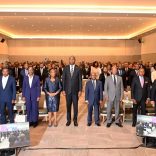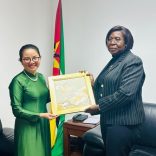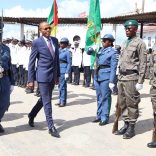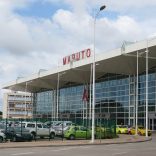Mozambique: Obey political dialogue law, end post-election violence - president
Mozambique: “We have no choice but to defend our country”,says PM – AIM report

Terrorists are attacking Mozambique, “and we have no choice but to come together and defend our country”, declared Prime Minister Carlos Agostinho do Rosario on Thursday, in the country’s parliament, the Assembly of the Republic, at the end of a two day question and answer session between the government and the deputies.
“We are living through a moment in which terrorism is spreading mourning among the Mozambican people, and is threatening our national sovereignty”, he said. “Terrorist actions call into question our gains, undermine the development of our country, and thus make it difficult to improve living conditions”.
“We reiterate that it is our prime responsibility, as Mozambicans, to combat terrorism and all the ills that threaten our existence as a sovereign state”, stressed the Prime Minister. “This is a question of putting the national interest above any other interest. With just one voice, we should face terrorism as the enemy of the Mozambican people”.
“In condemning and fighting all forms and expressions of terrorism, we should all play an active role, regardless of race, ethnicity, religion or party allegiance”, he added.
Rosario warned that, in cases of terrorist aggression, “there is a tendency for campaigns of disinformation to arise, and for false news and rumours to be spread. Often these actions are deliberate, and are part of the strategy of the terrorist groups and their followers, with the main goal of creating agitation and panic, and spreading fear”.
He gave no specific examples – but the most obvious recent case is the entirely false claim of a terrorist attack against the town of Mueda that supposedly happened on 15 April. The story ran in much of the Portuguese media, and in a few of the Mozambican media. Those who spread the story claimed to have photographs of beheaded and disemboweled corpses, but which were too grisly to be printed.
But there were no photos because there was no attack. The seed for the rumour was a cut in mobile phone communications in Mueda, which turned out to be caused, not by any act of terrorism, but by a technical problem with the fibre-optic cable.
Rosario pledged that the government will continue providing humanitarian assistance to the hundreds of thousands of people displaced from their homes in Cabo Delgado province by terrorist violence. This aid would be “focused on development and socio-economic recovery”.
“With this strategy”, said the Prime Minister, “we want to ensure that the affected population resumes, in the short and medium term, their normal lives, and cease to depend on humanitarian aid”.
Rosario refused to answer one question, from the opposition Mozambique Democratic Movement (MDM),which asked how much the Mozambican government has spent on the foreign military contractors hired to support the defence forces in the Cabo Delgado war (such as the Wagner Group of Russia, and the South African Dyck Advisory Group).
The Prime Minister said the government could not give information related to military strategy, which might benefit the enemy.
MDM deputy Fernando Bismarque protested that his party’s question had nothing to do with military strategy. The MDM wanted to know about money, not about troop deployment. He stressed that the Assembly had a duty to inspect the government’s use of public money, including for military purposes.
If the government insisted the matter was a state secret, then the Assembly cold go into closed session and kick the press out. Even this was not acceptable to the government.












Leave a Reply
Be the First to Comment!
You must be logged in to post a comment.
You must be logged in to post a comment.